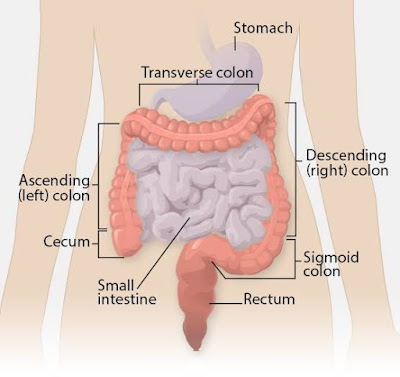We do not know exactly what causes most polyps and colon cancers. We generally know that colon cancer involves the production of oncogenes in the polyp, and / or the loss of the genest-suppressor genest that normally keeps cancer cells under control. Most cells contain proto-oncogenes that will help them grow. When a protruding protein changes, or has many copies, it can become a fully functional oncogen with uncontrolled growing cells. While the exact cause of these mutations is still unknown, experts blame a combination of genetic and hereditary traits. In the worst cases, when the cells inside the polyps disintegrate and spread unchecked, they eventually break through the colonic membrane. The lymph nodes carry blood to the rest of the body, and they can continue to build tissue. Apart from these challenges, there is a solution. We had a very good detection and removed irritating polyps before they caused cancer. This happens through a test called screening process, and if we do so, we can prevent many cases of colon cancer.
Who is at risk?
Most cases occur in people 50 years of age or older. This group is considered to be a moderate risk of colon cancer or colon polyps. There is also a high-risk group that includes people with a personal or family history of colon polyps or cancer, and those who suffer from genetic syndromes, or inflammatory diseases, such as Crohn's disease and ulcerative colitis. So the best years to start filtering from person to person. If you are able to get health care, it is best to consult a doctor and find out when to start.
Tests can be done with various tests. Colonoscopy includes a long, thin, flexible tube fitted with a video camera and light at the end and placed inside to explore the colony of polyps. If polyps are found, a doctor can perform a polypectomy, a procedure that removes polyps from the colon wall. Doctors can also diagnose a cancer cell polyp. Colonoscopy is the only test that can be used to detect and remove polyps. There are, however, some useful diagnostic tests, including imaging tests and home tests that can allow patients to test their feces for low blood pressure. Occasionally, polyps are too large to be removed during colonoscopy, where they occur, the next step is surgery. If blood tests and images show that the cancer cells have spread beyond the colon, then specialized treatments, such as chemotherapy, may be needed to stop the cancer from growing. We can also take certain practices to reduce the risk of colon cancer early. There is evidence that maintaining a healthy weight, not smoking, and exercising can help. But most importantly, access to health care and regular checkups at critical times in life are the best ways to prevent colon cancer.
Conclusion: Colon cancer is a not so common in india, according to ICMR 4.4 to 4.1/ 100000 cases in man and 3.9/100000 cases in women. Few of the things in Colon cancer like environment factor and genetic factor in out our our reach but few things like no smoking and healhy lifestyle we can maintain. Main thing to prevent colon cancer is regular screening, because it takes more than 10 years in some cases to reach cancer stage. So regular health check up and diagnosis is necessary at any cost. This article is dedicated to our beloved King of Wakanda (Chadwick Boseman) after his death it became really serious that without proper early diagnosis it can destroy our life.
Thanks for reading this article. For more information follow- what maybe you don't know about health and politics










0 Comments